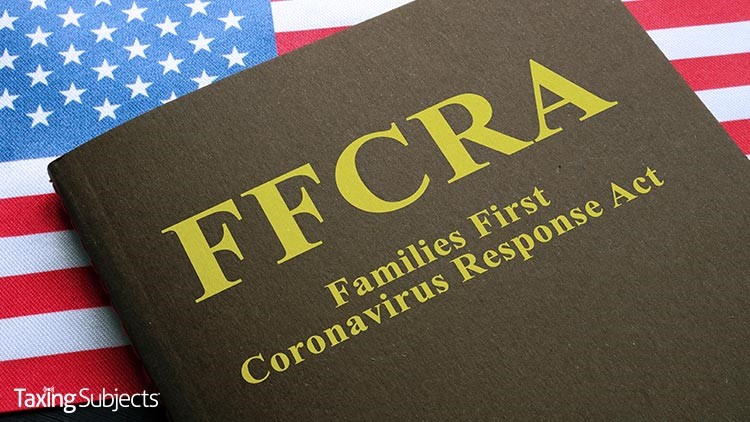
Small and midsize companies have been particularly hard hit over the past year by COVID-19. And while those employers been stretched to their limits by paying out large sums for sick leave and family leave due to the pandemic, some help is available.
The Families First Coronavirus Response Act, or FFCRA, became law in March 2020. The law provides refundable tax credits to small and midsize employers so they can be reimbursed, dollar-for-dollar, for the cost of providing COVID-19 sick leave and family leave wages to their employees.
The FFCRA is targeted at companies with fewer than 500 employees. It gives eligible employers funds to provide their employees with paid sick leave, medical leave, and family leave related to COVID-19—whether for the employee’s own health needs or to care for others.
The U.S. Department of Labor’s Wage and Hour Division administers FFCRA’s provisions.
Generally, the law provides that employees of covered employers are eligible for:
- Two weeks (up to 80 hours) of paid sick leave at the employee’s regular rate of pay where the employee is unable to work because the employee is quarantined (pursuant to Federal, State, or local government order or advice of a health care provider), and/or experiencing COVID-19 symptoms and seeking a medical diagnosis; or
- Two weeks (up to 80 hours) of paid sick leave at two-thirds the employee’s regular rate of pay because the employee is unable to work because of a bona fide need to care for an individual subject to quarantine (pursuant to Federal, State, or local government order or advice of a health care provider), or to care for a child (under 18 years of age) whose school or child care provider is closed or unavailable for reasons related to COVID-19, and/or the employee is experiencing a substantially similar condition as specified by the Secretary of Health and Human Services, in consultation with the Secretaries of the Treasury and Labor; and
- Up to an additional 10 weeks of paid expanded family and medical leave at two-thirds the employee’s regular rate of pay where an employee, who has been employed for at least 30 calendar days, is unable to work due to a bona fide need for leave to care for a child whose school or child care provider is closed or unavailable for reasons related to COVID-19.
The Labor Department says small businesses with fewer than 50 employees may qualify for an exemption from the requirement to provide leave due to school closings or child care unavailability if the leave requirements would jeopardize the viability of the business as a going concern.
The FFCRA covers this paid leave by providing small businesses with refundable tax credits. Similar credits are also available to some self-employed individuals.
How do employers get the paid sick leave tax credits?
Employers are entitled to a fully refundable tax credit equal to the required paid sick leave they funded. The tax credit also includes the employer’s share of Medicare tax imposed on those wages and “its allocable cost of maintaining health insurance coverage for the employee during the sick leave period.”
Eligible employers are not subject, however, to the employer portion of Social Security tax imposed on those wages.
Similar conditions apply for credits to reimburse qualified family leave wages.
Employers claiming the tax credits can retain an amount of all federal employment taxes equal to the amount of qualified leave wages paid, plus the allocable qualified health plan expenses and the amount of the employer’s share of Medicare tax imposed on those wages. Payment of these amounts to the IRS can be deferred until Jan. 3, 2022, according to Notice 2021-11.
Originally, the deferred deposits of the withheld amounts from qualified employees would have been due no later than April 30, 2021, as detailed in Notice 2020-65. But that was expanded in late 2020 to stretch the deferment period to Jan. 3, 2022.
If the federal employment taxes yet to be deposited aren’t sufficient to cover the eligible employer’s cost of qualified leave wages, allocable qualified health plan expenses and the amount of the employer’s share of Medicare tax on those wages, the employer can file a request for an advance payment from the IRS using Form 7200, Advance Payment of Employer Credits Due to COVID-19.
Employers claiming any of the leave credits must keep records and documentation supporting each employee’s leave to substantiate the claim for the credits. They should also retain Forms 941, Employer’s Quarterly Federal Tax Return, and Form 7200, Advance Payment of Employer Credits Due to COVID-19.
For more information on required paid leave and the associated credits, see the Labor Department’s Families First Coronavirus Response Act: Employee Paid Leave Rights, and the Frequently Asked Questions on Coronavirus leave provisions on the IRS website.
